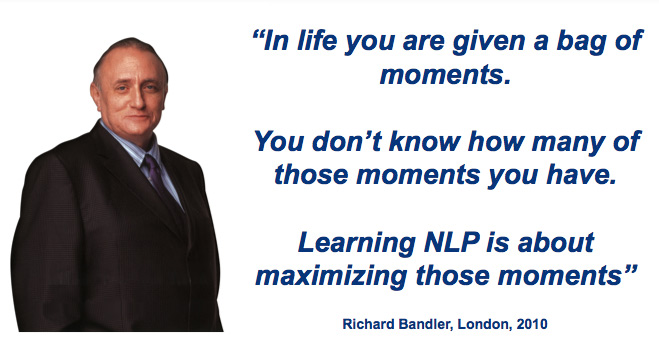According to the National Institutes of Mental Health, the number one fear in the world is public speaking,
Public speaking includes speaking on stage in front of large crowds, communicating in team meetings, and job interviews. Any situation where a person is the center of attention.
Hypnotherapist and author, Chris Delaney, will explain how to be confident in a job interview and the reason why most applicants have a deep rooted fear of the recruitment process.
Why are people afraid of the job interview?
The fear is linked to the human need to accepted. Humans, instinctively, band together, forming groups and teams, anything to create the feeling of belonging.
In these groups the leaders, the alphas, and confident members speak out. While others agree (with the leaders) to fit in, to belong.
Conformity Bias is when your views are swayed or influenced by the views of others.
Delaney says: “When being the center of attention, your ideas, opinions and self-worth are in the firing line.”
Humans fear rejection.
Rejection leads to being outcast from the group. For people with low self-esteem, they would prefer to stay quiet then to chance being rejected.
It is the fear of rejection that can stop people accepting a job interview offer.
The Brains Reaction to a Job Interview.
Confident people have an external focus. When offered a job interview there thought process is in the real world – ‘What actions shall I take to prepare for the job interview?’
Anxious individuals have an internal focus. The focus is on ‘How can I stay safe?’ This, in fact, is the positive side of anxiety, the brain is better prepared for dealing with threats.
The basic response to a threat is flight or fight. Your heartbeat quickens, providing the body with an increase in oxygen to better respond to the danger. Muscles tense (priming for action) which increase trembling and your body’s digestive system closes down as this is non-essential during a life or death situation.
But, a job interview isn’t ‘life or death‘. A job interview is a conversation about an applicants skills, qualities and experiences.
This circles back round to the fear of rejection. Prior to the job interview, the anxious applicant will have an increase in negative self-talk:
- “No-one will want to hear what I have to say”
- “I don’t think I have the skills/experience for this job”
- “The interviewer wont like me”
- “What if my mind goes blank”
- “I’m not suitable for this role”
Imposture syndrome is the belief that you are not as competent or skilled as others perceive you to be IE you wont be able to answer the interview questions and/or do the job once hired.
“The limiting beliefs we tell ourselves become our reality”
Chris Delaney Author of: What is your interview identity
It is the negative self-talk, the stories we tell ourselves, that increase job interview anxiety.
A picture is worth a thousand words. Self-talk often evolves into a visualization. An nervous interviewee, repeatedly says they are terrible in job interviews. The words turn into a movie in the minds eye – the applicant see’s themselves failing in the job interview.
Delaney says : What you see, you feel. If you visualize yourself as a nervous wreck, mumbling answers that don’t make any sense, the image creates a negative emotion – fear or anxiety.
The mind-body process, imagining a situation that creates an emotional reaction, reinforces itself. If the thought creates anxiety, the anxiety will make the thought seem more anxious.
The association between the image and emotion can become so strong that it creates a phobia.
How to Overcome Job Interview Anxiety.
Job interview fears and phobias are easy to overcome.
One way, that works well for the fear of job interviews, is exposure therapy.
Job interview anxiety is created because humans can fear the unknown. We are comfortable with routine. Most people don’t attend weekly job interviews, or even monthly interviews for that matter.
Reputation is the key to mastering any skill. The more you do something the better you will become at that activity.
Exposure therapy allows you to face the fear but in a safe environment.
3 ways to practice speaking:
- Mock interviews with a career coach
- Public speaking workshops
- Improv classes
This first piece of advice is common enough but it is still highly relevant. Predicting job interview questions, preparing answers and practicing out loud creates muscle memory.
As we said the job interview, for most people, is a rare situation, so everyone will feel a little nervous. When asked a question, muscle memory kicks in and the answers pops out of the candidates mouth before they know what they are saying.
The candidate, now realizing, they have given a high-scoring interview answer (due to their preparation and practice) now feels more confident during the recruitment process. Its similar to when a school pupil is asked an unexpected question, and they give the correct answer – they feel all fuzzy and warm inside.

Hypnotherapy Techniques for Job Interview Fears.
Chris has helped thousands of people overcome job interview anxiety and to increase interview confidence.
Chris says, when using hypnotherapy to cure interview phobias, he breaks the session down into three key segments:
- Create a deep sense of relaxation
- Removing the negative associated emotion
- Create excitement for the job interview
Job Interview Relaxation.
Chris explains how the easiest way to get into a state of relaxation is through controlling your breath.
The type of breath can change your heart rate, your heart rate effects the flight or fight response, the flight or fight response effects the job interview outcome.
A long deep breath in from the stomach, and a slow breath out reduces the heart rate.
Rapid breaths from the chest speed up the heart rate creating the feeling of anxiety.
Delany uses rhythmic breathing with anxious clients:
- Breath in deeply from the stomach for 4 long seconds
- Hold the breath for another 4 seconds (if this is comfortable for you)
- Force the breath out (exhale powerfully) for 4 more seconds
- Repeat this pattern 5-6 times
Once in a state of relaxation, an anxious client can visualize their fear without having the same negative effect. If the visualization is still emotionally strong, move the thought away and repeat the breathing exercise.

Remove the Negative Emotion.
Once, in a calm and relaxed state you can focus on a fear without it having the same negative effect. But the fear, or the object of fear is still there.
Better to remove this completely.
Once a negative thought is vanished, the associated emotion is also removed.
To remove job interview anxiety, first think about attending a job interview.
Make the thought big, bright and vivid.
Next, push the thought outside of your head, so you can imagine the thought floating in front of you.
Shrink the thought of a negative job interview down into a small ball. and flick it on and off until the colour of the picture disappears and you are left with a black and white small image.
Finally, push the thought further and further way until it is just a dot on the horizon. Then let it go.
Repeat this technique several times. Then, think about a job interview and if the negative association has gone or is weaker.
Create Excitement.
An interview opportunity is an exciting event.
Finding the right job, in the right sector, in the right company can help to create satisfaction.
Job interview excitement is created by two elements:
1) Understanding you possess the skills and experiences for the job role (knowing you are a suitable candidate)
2) Believing that you will communicate confidently in job interview
First, right a list of all your job related skills, qualities and experiences:
- Work ethic
- Creative problem solving
- Specialist skill/knowledge
- Natural leader
- Highest earner
- Proactive
- Any number of sector related duties/skills
Next, imagine you were your manager or colleague. Write a list of all the positive skills and experiences they believe you have.
Write a third list of the added value you can bring to a new organisation.
These list are designed to help an applicant reflect on their ability to complete the new job duties.
In the recruitment process, interview questions are always based on the main job duties, and required skills, for each position. These list, therefore, can help the candidate predict the job criteria and the job interview questions, helping them to prepare high-scoring interview answers.
Craft perfection from practice, The more an interviewee practices delivering the job interview answers, the more skilled they will become at delivering answers that score high.
To believe in your own job interview ability you can create a new, positive, association to the recruitment process.
- Imagine yourself in a job interview performing well. See yourself smiling, enjoying yourself, sense the strong rapport between you and the employer. Hear yourself giving detailed answers to any job interview question. Notice your positive body language, gestures and tone of voice. Become aware of everything that makes you a strong and professional interviewee.
- Design this film anyway you want to. Make it big, bright and vivid.
- Imagine being there in the moment, seeing the film from your own eyes.
- Focus on the positive emotions, the feeling of job interview excitement. make these feeling stronger, double and triple it, until the positive feeling of you in a job interview is at its optimum.
- Take a deep breath and repeat 4-5 times.
A strong emotional visualization is recorded in our memory. When you next think about a forthcoming job interview, the mind will trigger the new positive association, helping a candidate feel more excited for the job interview.













